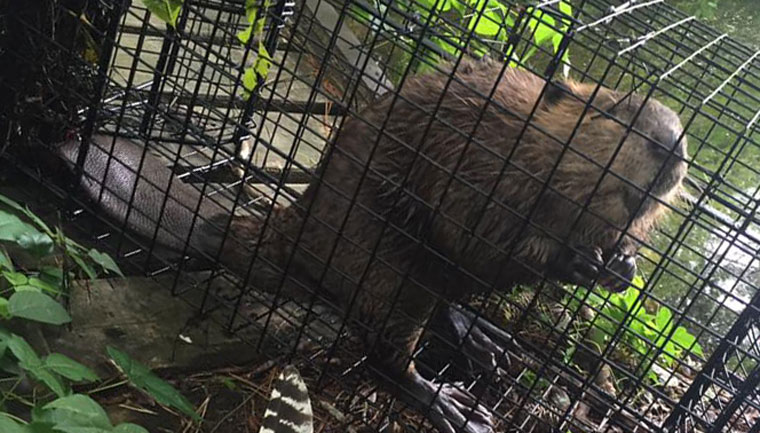-
info@aaanimalcontrol.com
Call us for help in your town
Humane Wildlife Education
Stopping beavers from eating trees
Need wildlife removal in your hometown? We service over 500 USA locations! Click here to hire us in your town and check prices - updated for year 2020.
The beaver is notorious for biting on wood and trees, so that they can then build dams out on lakes are across creek areas. Without the ability to chew on trees the beaver would be in a lot of trouble. It not only requires this special skill to be able to build its homes, but it also aids the animal in being able to hunt and trap food.

While you may appreciate this, that does not mean that you want to beaver chewing on the trees on your property. If you live near a lake, pond, or creek, you may frequently find that these little mammals are tearing apart the forest in your area so as to create new homes. You don't want this to happen, so you want to know how to stop beavers from eating trees?
The first of that you can take is to do something to deny the beaver access to the tree itself. One of the best ways that you can do this is by applying a special kind of mesh that goes around the tree and deters the beaver from being able to chew on it. The mesh itself is resistant to beaver bites, making it so that the animal is unable to chew through the mesh and onto the bark. This will stop the animal from being able to have any success at reaching your tree.
If you are still a little concerned that this will not do the trick for you, then a great option for you would be the use of a chemical repellent. Usually, you can find a mesh material that not only deters the animal from being able to chew through the mesh and onto the tree, but several of these products will actually absorb the chemical in them making it an even greater deterrent to the beaver.
When a beaver approaches the mesh and begins to try to chew on it, it irritates its teeth and the repellent taste also has an irritating effect on the beaver. It will leave because it finds the flavor to be something it simply cannot stand.
You may find that either one of these options will be a lot of work on your part to be able to successfully keep the beavers away, but the truth is that there are no real easy solutions to this problem. If you live near a creek or lake then you have a likely situation where a beaver is going to be attracted to trees that surround the water area, and so you have to take measures to stop these animals from being able to ruin your home forest.
The advantage to using these is that there is nothing harmful to your vegetation or to the beavers themselves. There are no toxic chemicals contained within these products; just ones that are irritating to the beaver. This will let you know that you are not doing anything harmful to the environment, but simply resolving your issue.
For more information, you may want to click on one of these guides that I wrote:
How To Guide: Who should I hire? - What questions to ask, to look for, who NOT to hire.
How To Guide: do it yourself! - Advice on saving money by doing wildlife removal yourself.
Guide: How much does wildlife removal cost? - Analysis of wildlife control prices.
Animals in the attic - read about the common species.
Noises in the attic - how to identify critters by their sounds.


















